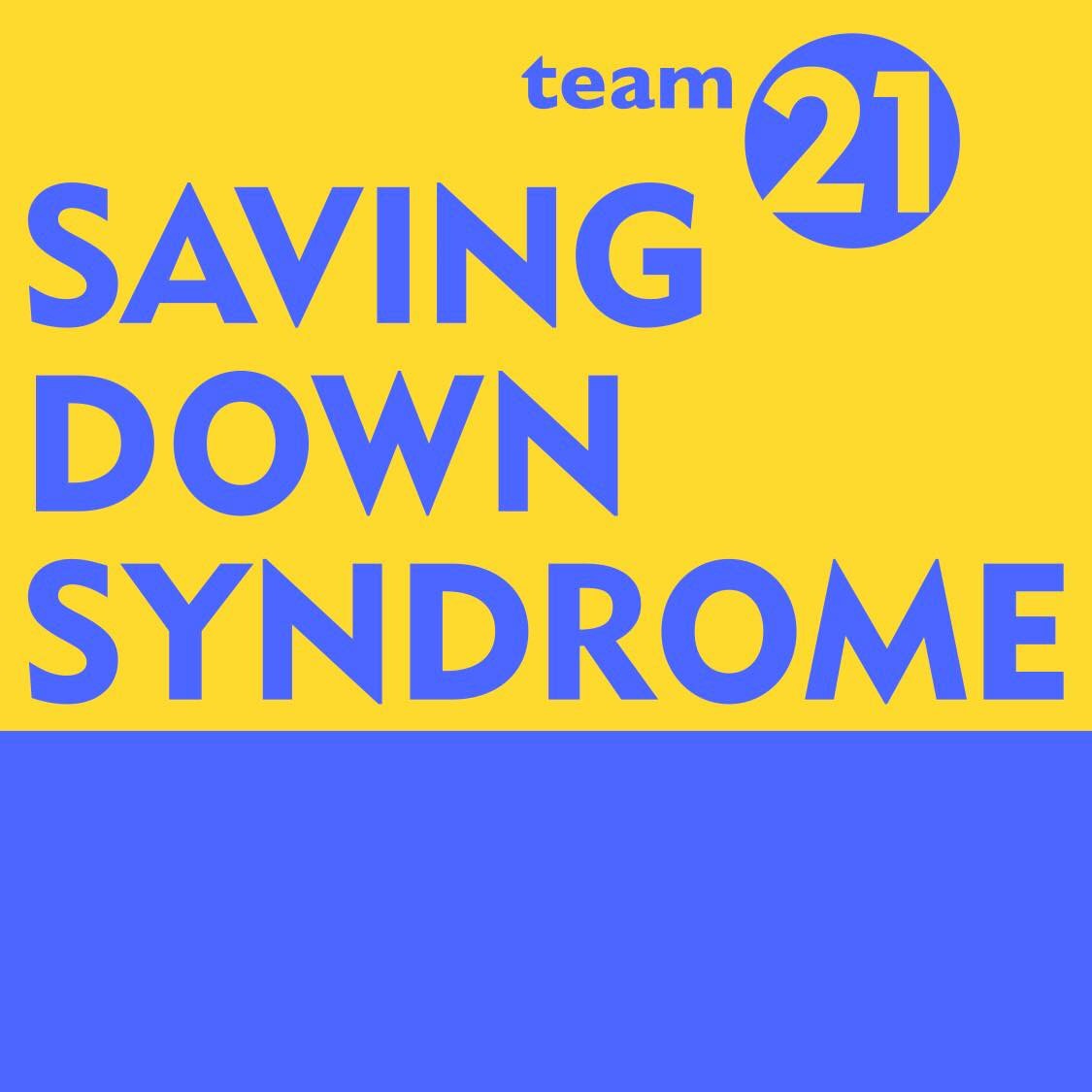
Richard Dawkins doesn’t learn from his mistakes. He just makes them broader.
In his infamous tweet from 2014, Dawkins claimed it was immoral to birth children with Down syndrome. And just the other day, he found it “plausible that, if a child has any kind of disability, then you probably would increase the amount of happiness in the world more by having another child instead.” He also claimed it would be “wise and sensible” to abort a child who is deaf or blind.
The concepts that Dawkins operates with are nothing new. They boil down to utilitarian ethics (of the “act utilitarianism” variety) coupled with an unreflected pro-choice mentality.
This advice to replace disabled children with abled ones for more happiness is derived according to something called “hedonistic calculus”. In utilitarian moral philosophy, good is equated with happiness. Happiness is commonly defined as pleasure or absence of pain. Therefore, according to this doctrine, one should act to increase the overall amount of happiness in the world and decrease the amount of suffering. In addition to “act utilitarianism”, there are far more nuanced and subtle theories out there under the umbrella of “rule utilitarianism”, but Dawkins’s remarks fall neatly in the cruder category of act utilitarianism. It is quite pleasurable to see this seemingly simple but immensely problematic doctrine fall on its head by the sheer force of Dawkins’s banality. Let us analyze it to see the fall in slow motion, shall we?
When judged by logic and the standards of their own ethical underpinnings, Dawkins’s remarks appear to be:
- ignorant;
- nonsensical;
- insufferable;
- ableist;
- eugenic and
- on the wrong side of history.
Let’s explain these features in detail.
1. Dawkins’s remarks are ignorant.
I will not go into the empirical statistics that provide irrefutable proof that most people with Down syndrome or other disabilities live full and satisfying lives, nor will I go into my own experience as a parent of a child with Down syndrome. I will stick to logic.
According to Dawkins, the world would be a happier place if people would kill as many future persons with a disability in utero as possible.
That means Dawkins sees disability as radically negative in terms of the probability of achieving higher levels of happiness through living which might make up for their congenital happiness deficit. Logic, however, dictates that disability must be contingent to happiness, since disability does not render people incapable of experiencing pleasure. However, being terminated does. Therefore, if you terminate fetuses because of their disability, you just prevent whole groups of people from experiencing life and experiencing happiness, thus disabling them to be happier than suffering, all due to your ignorant notion of their congenital disability as being literally insufferable.

2. Dawkins’s remarks are nonsensical.
Unlike with ignorance, which refers to the lack of knowledge, nonsense refers to the failure to execute reason in a continually functional manner.
Like all humans, humans with disabilities do not pop into existence once they meet Dawkins’s criteria of viability, pain perception or extrauterine autonomy. The existence of a disability presupposes the existence of the body.
It makes no sense to advocate for the prevention of disabled humans’ existence using the argument of the existence of their body’s disability. They already exist.
Since we cannot know for sure that the intrauterine fetal body is currently suffering from the lack of pleasure or experiencing pain due to its disability only, the only valid solution within the act utilitarian ethical frame is to painlessly kill the body once Dawkins objectively determines that it is, in fact, about to start suffering. This is the only way he could yield the largest amount of happiness while minimizing suffering. Parents could have their otherwise wanted babies and enjoy parenthood up to a specific point. Milk apparently tastes spectacular, even to disabled babies. Life would be bright and pleasurable to all interested parties, up to a point. One would need to make sure about those facial expressions – are they caused by gases or some profound horrors of disability? Or is a toddler’s frustrated cry while attempting to crawl just typical or is it necessarily related to disability? Is a teenager’s angst exclusively related to their own perception of disability or is it just hormones? And so on. And only when positive these sufferings are exclusively related to disability, should Dawkins advise the good parents (or some postnatal abortionists) to strike.
This might become the grandest hedonistic calculus ever calculated. It could also be Dawkins’s highest intellectual achievement yet. Imagine the extent of the elements immaculately factored in. I’m sure he (along with those wise and sensible parents) will be on board with this brilliant opportunity for the greatest calculation of the happiness/suffering balance sheet in the whole of human history, save Aktion T4.
3. Dawkins’s remarks are insufferable.
Sadly, there appears to be a stumbling block on the path of seizing this bright opportunity. Dawkins’s remarks bring suffering into the world, without any redeemable quality, not even humor. Not even their freakishness would do – humanity has already suffered numerous forms of this argument throughout history. In other words, more fitting the genre: prior to their promising conclusion, these comments significantly reduce the amount of happiness in the world.
This is because Dawkins’s ignorant notions of disability as radical incapability to be happier than suffering, along with his sensible and wise advice to kill disabled fetuses in utero, actually inflict serious pain on certain people. This primarily refers to those who are disabled. But it also affects those whom these remarks implicitly call unwise and unsensible, i.e. foolish and stupid – the parents of people with disabilities. And since hedonistic calculus should always mind the maximum number of foreseeable consequences, I’ll go even further. Such logic probably adds to an effect of depressing people into abortion on the grounds of disability. Which brings us to the next feature.
4. Dawkins’s remarks are ableist.
Dawkins operates with disability as an incapacity to be happier than suffering, and perceives disability as a reducing factor in the global sum of happiness. Therefore, from Dawkins’s viewpoint of utilitarian ethics, disability is bad and having it is morally wrong.
But in order to position himself beyond criticism, he presents his calculated discrimination as speculative and he makes it about choosing against one future person in favor of another future person.
However, the discriminating is demonstrably and effectively performed in the very act of making this conclusion, regardless of the “speculative” nature of the subjects at hand. It is impossible to make this statement and not discriminate against any person with a disability, since the conclusion itself means such disability makes the existence of anyone having it less desirable than the existence of anyone without disability.
Section 15 of the UK’s Equality Act states that a person (A) discriminates against a disabled person (B) if A treats B unfavorably because of something arising in consequence of B’s disability, and A cannot show that the treatment is a proportionate means of achieving a legitimate aim.
It has been demonstrated that Dawkins treats persons with disabilities unfavorably in more than one way.
But can he show that this treatment is a proportionate means of achieving a legitimate aim? Let’s see: increasing the global sum of happiness can surely be seen as a legitimate aim, right?
However, the conclusion which he makes about the existence of people with disabilities cannot constitute a proportionate means, because it is impossible to advocate for the killing of the bodily present future persons with disabilities without:
a) consequently rendering all present persons with a disability better off dead,
b) rendering all future persons with disabilities who get to carry on with their living better off dead, and,
c) if successful, making their community smaller and smaller, thus seriously undermining their chances for acceptance, relations with others (different and alike), support, quality healthcare and political significance. A smaller community means a higher probability of not having people like you around to engage with or relate to, a higher probability of not receiving quality specialized care and healthcare, a higher probability of less social visibility, and a higher probability of more social and political injustice.
Therefore, he actually discriminates against people in more than two ways. And it’s serious.
5. Dawkins’s remarks are eugenic.
When Dawkins wrote his explanation for the 2014 tweet about Down syndrome, he claimed that his stance cannot be eugenic, since “Down Syndrome [sic] has almost zero heritability”.
Spartans used to throw the infants they perceived as flawed off a cliff, without particularly wanting to prevent them from having their own offspring in the future – they just wanted those less desirable out of the picture. That supposedly made them happy.
The idea that the world and the people in it would be better off if everyone were born without “defect” is the essential principle of eugenics (translated literally as well-born). The true differentia specifica lies in the ideological defining of a congenitally present set of traits that renders people less worthy of being given the chance to live or to breed similar people.
Which is exactly why even the UN operates with the term “liberal eugenics” in the context of disability discrimination in abortion, regardless of the heritability.
Since fetuses with disabilities are surely alive but their congenital incapacity to add happiness into the global sum makes them unworthy of life according to Dawkins’s calculus, it is obvious that Dawkins’s stance is explicitly and implicitly eugenic in the most horrific sense of the Lebensunwertes Leben ideology: he literally perceives their lives unworthy of living. This fits in quite neatly with the last feature of his stance:
6. Dawkins is on the wrong side of history.
As I write this, 80 US congresspersons are declaring discriminatory abortions wrong, urging the US Supreme Court to grant certiorari in the case of the 8th Circuit Court of Appeals blocking an Arkansas Bill that prohibits abortion on the grounds of Down syndrome. Venerable institutions like Jerome Lejeune Foundation USA have just submitted their Amicus Brief to the US Supreme Court in order to dismantle the legal potential for prenatal discrimination. Eleven US states have passed or are in the process of passing bills that prevent lethal discrimination in utero. In the UK, a challenge to the existing abortion legislation will be brought to the High Court of England and Wales by Heidi Crowter, who has Down syndrome, and Máire Lea-Wilson, who has a little boy with the same condition. The world is slowly coming out of the eugenic slumber. The UN’s Human Rights Council and Committee on the Rights of Persons with Disabilities are getting more vocal about the “liberal eugenics”, and anti-eugenics advocates and self-advocates are speaking out and the world is starting to pay attention.
We the people from the Down syndrome community – self-advocates, parents and other justice advocates – have come a long way in this fight for dignity and recognition of equal worth and value of people with disabilities. Over the decades, we fought for de-institutionalization, for more systemic inclusion and for a less discriminatory healthcare. Today, we fight for prenatal justice for people with disabilities, and we will win. Because we don’t have calculuses. We have principles.






